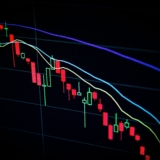The US has lost influence in the Middle East, Is China their new ally?
U.S. Secretary of State Antony Blinken’s three-day visit to Saudi Arabia this June is emblematic of the United States’ ongoing struggle to maintain its influence in the Middle East. The visit comes as the region’s dynamics shift, with traditional U.S. allies forging new alliances, particularly with China and Russia.
In July of the previous year, President Joe Biden had attended the Gulf Cooperation Council summit in Saudi Arabia, pledging that the U.S. “will not walk away and leave a vacuum to be filled by China, Russia, or Iran.” However, recent developments suggest otherwise, as U.S. allies in the region have strengthened ties with Beijing, Tehran, and Moscow.
The Chinese-brokered Saudi-Iranian agreement to re-establish diplomatic relations, despite U.S. objections, has raised concerns in Washington. The U.S. worries about China’s growing influence in the oil-rich Gulf region and the broader Middle East. While the U.S. has become more energy-independent in recent years, it remains interested in maintaining control in the region to secure vital energy supplies for its allies and to potentially cut off China’s access in the event of a conflict.
Secretary Blinken recently emphasized that “China represents the most consequential geopolitical challenge we face today: a country with the intent and, increasingly, the capability to challenge our vision for a free, open, secure, and prosperous international order.”
Yet, the autocratic systems in Beijing might find a more receptive audience among Middle Eastern autocrats than Washington’s democracy.
Russia’s increasing influence in the Middle East has also raised concerns in the U.S. The Biden administration has been pressuring certain Middle Eastern states to distance themselves from Russia, warning against aiding Russia in evading sanctions and urging them to take sides in the global geopolitical landscape.
However, Saudi Arabia has resisted the U.S. request to significantly increase oil production to lower prices and offset Western sanctions on Russia. The kingdom has maintained strong relations with Moscow, even as it refrains from fully supporting Ukraine. This stance has reportedly boosted Crown Prince Mohammed bin Salman’s popularity in the region, seen as a defiant response to U.S. pressure.
Saudi Arabia’s shift in attitude toward the U.S. is not unique. The United Arab Emirates, another traditional U.S. ally, has cultivated closer ties with China, strengthened relations with France, and engaged with Iran, Russia, and India, sometimes at the expense of its relations with the U.S.
This diversification is evident in trade statistics. Trade between the Middle East and China has surged from $15.2 billion to $284.3 billion between 2000 and 2021, while trade with the U.S. increased only modestly from $63.4 billion to $98.4 billion during the same period.
While the U.S. has been the dominant power in the Middle East for the past three decades, the region’s leaders and the general public have grown skeptical of its intentions, viewing it as a hypocritical imperial power that prioritizes its interests over human rights and democracy.
The U.S.’s stance on the Israel-Palestine conflict has particularly contributed to this perception. The Palestinian cause resonates strongly with ordinary Arabs, and the U.S.’s unwavering support for Israel has further convinced many in the region that the U.S. is a duplicitous power.
Secretary Blinken’s visit to Riyadh will likely include pressure on Saudi Arabia to normalize relations with Israel, potentially lowering Saudi Arabia’s demands in exchange for nuclear civilian programs and security assurances. Other Arab nations, such as the UAE, Bahrain, Morocco, and Sudan, have already normalized relations with Israel in exchange for U.S. concessions.
The region’s desire for greater autonomy from the U.S. has grown, fueled by a sense that the U.S. has not acted in the region’s best interests. This sentiment is underscored by the widespread availability of satellite television and social media, which have exposed the consequences of U.S. interventions in the Middle East over the past two decades.
A 2022 poll conducted by the Doha-based Arab Center for Research and Policy Studies revealed that 78% of respondents in 14 Arab countries viewed the U.S. as the biggest source of threat and instability in the region. This perception surpassed concerns about Iran and Russia.
The Middle East’s decoupling from the U.S. and the U.S.’s disengagement from the region are increasingly seen as desirable and inevitable by many in the region. Such a shift would carry significant implications for both sides, contingent on whether and how the U.S. chooses to adapt its foreign policy to these changing dynamics.





